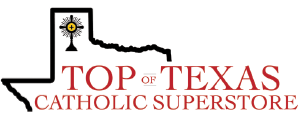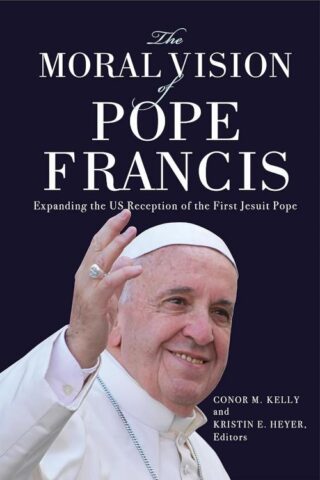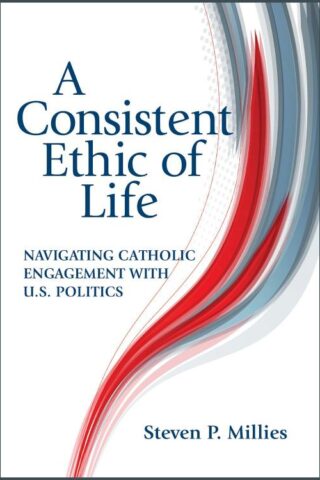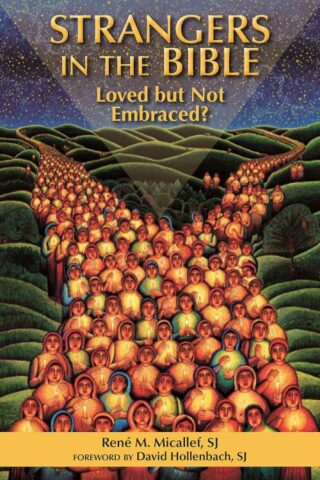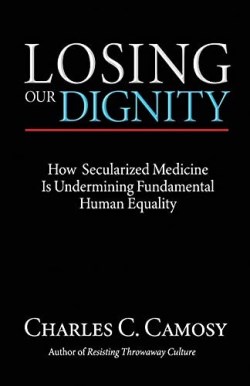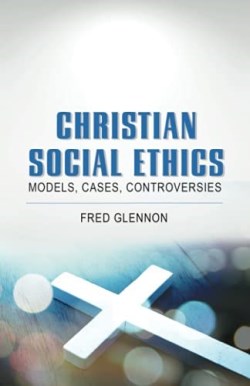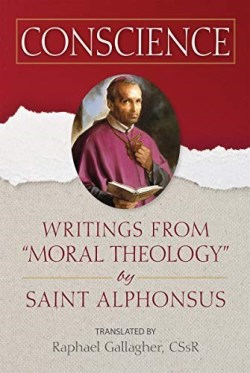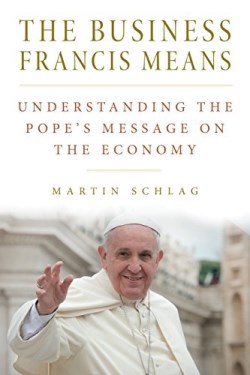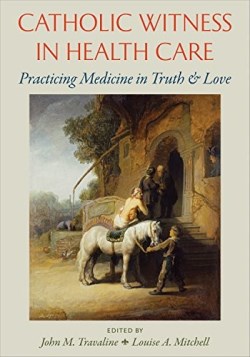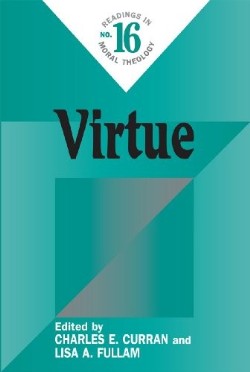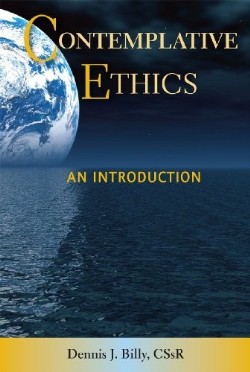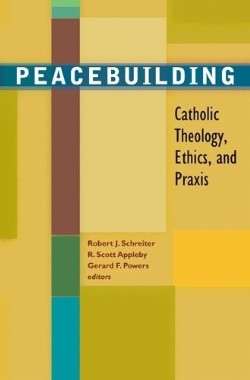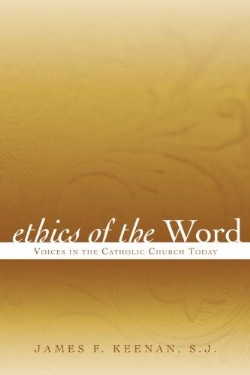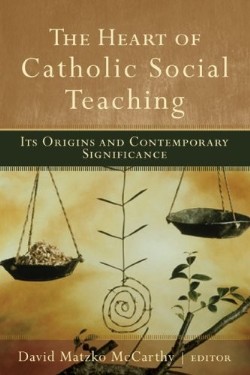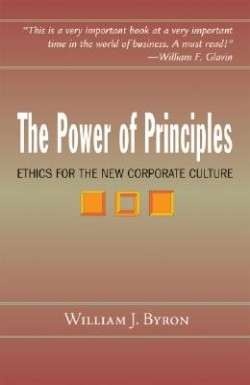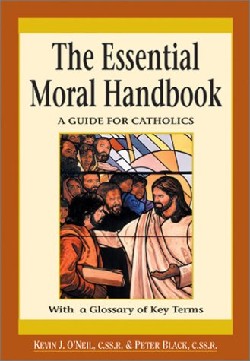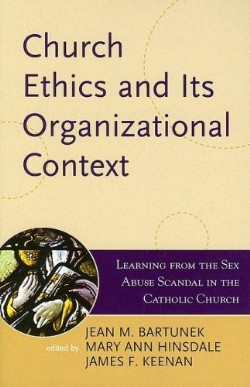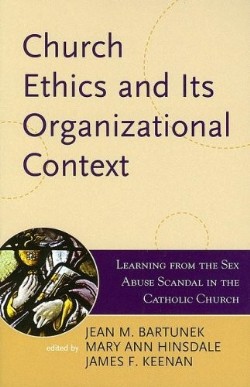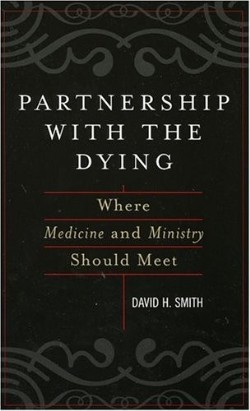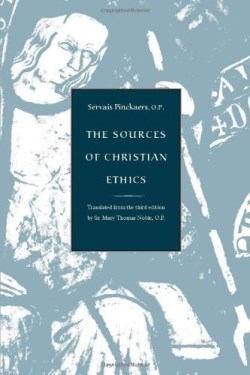Ethics
Showing all 26 resultsSorted by latest
-
Moral Vision Of Pope Francis
$104.95Add to cartA Georgetown University Press Title
A thoughtful reflection on how the “Francis revolution” can address the practical concerns of ordinary Catholics on a range of contemporary issues
The papacy of Pope Francis has ushered in remarkable changes for the Roman Catholic Church. From a new emphasis on collegiality in ecclesial governance to a transformed set of public priorities for the global Church, Francis’s unique model of pontifical leadership has far-reaching implications for virtually every aspect of Catholic practice. Catholic moral theology-particularly in the United States-has still not grappled fully with the emphases of Francis’s pontificate.
To address this lacuna, The Moral Vision of Pope Francis brings together a range of Catholic ethicists to reflect on Pope Francis’s implicit approach to moral theology, establishing the unique insights of this first Jesuit pope. This evaluation of Pope Francis’s teachings and actions draws out the moral vision animating his work and demonstrates how his moral vision should apply to Catholic ethical reflection on a range of contemporary issues.
The Moral Vision of Pope Francis shows how the “Francis revolution” meaningfully addresses the practical concerns of Catholics in the United States.
-
Consistent Ethic Of Life
$18.95Add to cartThe consistent ethic of life is a fully Catholic engagement with the difficult challenges that conscience encounters in our time. This short book is a resource for parishes and general readers to rediscover the consistent ethic now in this challenging, divided moment of our history.
Tracing the historical development of the consistent ethic from the early 1970s up to recent days, A Consistent Ethic of Life encourages readers to adopt an attitude that calls them to be partisans for life above the partisanship of our politics.
-
Strangers In The Bible
$34.95Add to cartStrangers in the Bible explores ways of overcoming the boundaries between exegesis and ethics without abolishing or blurring those boundaries. It makes a unique contribution by combining in a single book the epistemological debates, the methodology, and the results related to using Scripture to delve into an ethics issue.
-
Losing Our Dignity
$22.95Add to cartThere is perhaps no more important value than fundamental human equality. And yet, despite large percentages of people affirming the value, the resources available to explain and defend the basis for such equality are few and far between. In his newest book Charles Camosy provides a thoughtful defense of human dignity.
Telling personal stories like those of Jahi McMath, Terri Schiavo, and Alfie Evans, Camosy, a noted bioethicist and theologian, uses an engaging style to show how the influence of secularized medicine is undermining fundamental human equality in the broader culture. And in a disturbing final chapter, Camosy sounds the alarm about the next population to fall if we stay on our current trajectory: dozens of millions of human beings with dementia.
Heeding this alarm, Camosy argues, means doing two things. First, making urgent and genuine attempts to dialogue with a secularized culture which cannot see how it is undermining one of its most foundational values. Second, religious communities which hold the Imago Dei sacred must mobilize their existing institutions (and create new ones) to care for a new set of human beings our throwaway culture may deem non-persons.
-
Christian Social Ethics
$35.00Add to cartThis college-level introductory text on Christian social ethics combines theory, cases, and analysis. Case studies include the use of drones in war, the Keystone XL pipeline, and Masterpiece Cakeshop vs. the Colorado Civil Rights Commission. Each chapter incorporates suggestions for further research, suggestions for praxis components and other teaching and learning activities, and discussion questions.
-
Conscience : Writings From Moral Theology By Saint Alphonsus
$28.99Add to cartFor the first time ever, this work on moral theology, reasoning and rational decisions by the founder of the Congregation of the Most Holy Redeemer has been translated into English from its original Latin. Raphael Gallagher, CSsR, faithfully translates Saint Alphonsus Liguori’s teachings on moral theology and provides commentary to make the 18th-century text relevant for today.
This book is sure to be treasured by those who enjoy reading the works of the Redemptorist’s prolific founder.
-
Business Francis Means
$24.95Add to cartPope Francis, generally speaking, has thus far chosen to concentrate his papacy on social justice issues, as opposed to doctrinal or liturgical issues. This has led to Francis being hailed as a hero to many on the left, while it has made some conservative supporters of St. John Paul II and Pope Emeritus Benedict XVI disappointed and uncomfortable, even as they love and appreciate his person and gestures of mercy and compassion. Some find his teachings difficult to embrace, especially those concerning business and the economy. Pope Francis has spoken of building bridges as part of what it is to be Christian, but aspects of his message seem to be just constructing walls between the Holy Father and groups of the faithful.
The Business Francis Means aims to break through these walls, showing that Pope Francis has something to say to all Christians. His message, taken as a whole, keeps us from dividing the “seamless garment” of Christ: he reminds the conservatives of the problems of inequality and poverty, and the liberals that social justice is not enough – the Church is the bride of Christ, not a social institution or an NGO.
Monsignor Martin Schlag summarizes and explains the message of Pope Francis on business and the economy in this compact volume. The Business Francis Means will be of great interest to the Catholic layperson, especially one involved in political or economic life.
-
Catholic Witness In Health Care
$45.00Add to cartCatholic health care is about ethics but also “ethos” – not only what we shouldn’t do but a vision for what we should do with love. The issues it faces don’t just concern academic bioethicists – they concern every faithful Catholic doctor, nurse, practitioner, and even patient. Modern medical practitioners on the ground, day-in, day-out, wrestling with medical moral matters, witnessing what is happening in American medicine today, while also striving to witness to their Catholic faith in living out their medical vocation – these are the primary authors of this unique book, and these are the readers it hopes to serve.
Catholic Witness in Health Care integrates the theoretical presentation of Catholic medical ethics with real life practice. It begins with fundamental elements of Catholic care, touching upon Scripture, moral philosophy, theology, Christian anthropology, and pastoral care. The second part features Catholic clinicians illuminating authentic Catholic medical care in their various medical disciplines: gynecology and reproductive medicine, fertility, pediatrics, geriatrics, critical care, surgery, rehabilitation, psychology, and pharmacy. Part three offers unique perspectives concerning medical education, research, and practice, with an eye toward creating a cultural shift to an authentically Catholic medical ethos.
Readers of this book will learn essential elements upon which the ethics of Catholic medical practice is founded and gain insights into practicing medicine and caring for others in an authentically Catholic way.
-
For Love Of Animals
$17.99Add to cartFor Love of Animals is an honest and thoughtful look at our responsibility as Christians with respect to animals. Many Christians misunderstand both history and their own tradition in thinking about animals. They are joined by prominent secular thinkers who blame Christianity for the Western world’s failure to seriously consider the moral status of animals.This book explains how traditional Christian ideas and principles-like nonviolence, concern for the vulnerable, respect for life, stewardship of God’s creation, and rejection of consumerism-require us to treat animals morally. Though this point of view is often thought of as liberal, the book cites several conservatives who are also concerned about animals. Camosy’s Christian argument transcends secular politics.The book’s starting point for a Christian position on animals-from the creation story in Genesis to Jesus’ eating habits in the Gospels-rests in Scripture. It then moves to explore the views of the Church Fathers, the teachings of the Catholic Church, and current discussions in both Catholic and Protestant theology. Ultimately, however, the book is concerned not with abstract ideas, but with how we should live our everyday lives. Should Christians eat meat? Is cooperation with factory farming evil? What sort of medical research on animals is justified? Camosy also asks difficult questions about hunting and pet ownership.This is an ideal resource for those who are interested in thinking about animals from the perspective of Christian ethics and the consistent ethic of life. Discussion questions at the end of each chapter and suggestions for further reading round out the usefulness of this important work.
-
Limits Of Hospitality
$19.95Add to cartPracticing hospitality is central to building a civil society, not to mention living a Christian life. It can be enriching and joy-filled, but it can also be profoundly demanding and sometimes even dangerous. In The Limits of Hospitality, Jessica Wrobleski explores the ethical questions surrounding the practice of hospitality, particularly hospitality that is informed by Christian theological commitments.
While there is no algorithm that distinguishes between ethically “legitimate” and “illegitimate” boundaries, the variety of circumstances in which hospitality is relevant and the nature of hospitality itself make advocating firm and fixed boundaries difficult. How much more so for Christians, for whom the practice of hospitality should be a manifestation of agape, a participation in God’s eschatological welcome extended to all people through Jesus Christ!
Are limits to hospitality, then, merely a regrettable concession to our finite and fallen condition? Wrobleski offers a rich theological reflection that will interest anyone who has a role in the practice of hospitality in community-whether such communities are families, households, churches, educational institutions, or nation-states.
-
Peacebuilding : Catholic Theology Ethics And Praxis
$40.00Add to cartPeacebuilding refers to a range of topics, ranging from conflict prevention to post-conflict reconciliation. In this volume a strong cast of Catholic theologians, ethicists, and scholar-practitioners join to examine the challenge of peacebuilding in theory and practice. While many of the essays deal with general themes of reconciliation, forgiveness, interreligious dialogue, and human rights, there are also case studies of peacebuilding in such diverse contexts as Colombia, the Philippines, the Great Lakes region of Africa, Indonesia, and South Africa. This volume will be of interest to all scholars engaged in developing a theology and ethic of just peace, as well as students seeking to understand the interaction between theology, ethics, and lived Christianity.
Contributors include: John Paul Lederach; Maryann Cusimano Love; Daniel Philpott; William Headley and Reina Neufeldt; Todd Whitmore; Peter-John Pearson; Thomas Michel; Kenneth Himes; Lisa Sowle Cahill; Peter Phan; and David O Brien.
-
Ethics Of The Word
$34.00Add to cartAcknowledgments
Introduction: As I See And Hear ItPart 1: A Church In Need Of Living The Truth In Love
Chapter 1: Ethics Inside The Church: Looking Back, Looking Forward
Chapter 2: Proposing An Ethics Of The Word
Chapter 3: Learning An Ethics Of The Word
Chapter 4: Silence In The Ethics Of The WordPart 2: The Humanity Of Our Discourse
Chapter 5: The Human Voice
Chapter 6: Memory
Chapter 7: Conscience
Chapter 8: A Critical Challenge: Recovering Christian Dialogue
Chapter 9: Modeling Christian Dialogue: The First International Cross-Cultural Discourse On Theological Ethics (Padova, Italy, July 2006)Part 3: Forms Of Christian Discourse
Chapter 10: Teaching
Chapter 11: Conversations
Chapter 12: Civil Discourse
Chapter 13: Being Called
Chapter 14: Taking Vows
Chapter 15: Apologizing
Chapter 16: Appreciating The Limits Of Language
Chapter 17: Reporting The Truth To Hurt Another
Chapter 18: Lying And The Obligation To Get The Story RightPart 4: Words
Chapter 19: Beautiful Words, Good Words
Chapter 20: Words Of Death And Gratitude
Chapter 21: Challenging Words
Chapter 22: Words Of Life
Chapter 23: Words Of Greeting And FarewellPart 5: Faith, Hope, And Love
Chapter 24: The Language Of Faith
Chapter 25: The Language Of Hope
Chapter 26: The Language Of LoveAdditional Info
In Ethics of the Word beloved priest and author James F. Keenan, S.J., discusses the power of the Word in the Catholic Church. In the ongoing wake of the priest abuse scandals, Father Keenan argues that we need new ways to build trust and open communication in the Church on all levels-from bishops to parishioners. Keenan’s engaging style blends stories, Scripture, and theology to show readers the importance of both speaking and listening. The book covers topics ranging from difficult confrontations to apologies to the language of faith, hope, and love. -
Heart Of Catholic Social Teaching
$28.00Add to cartThis accessible introduction covers the complete history and contemporary contexts of the church’s involvement in Catholic social tradition, giving distinctive attention to the Bible, liturgy, the thought of Augustine and Aquinas, and recent theological developments.
Bringing together veteran teachers of Catholic Social Teaching who have worked together on the content, this book is designed to set social questions within the Catholic tradition and contemporary life. End-of-chapter application sections address practical concerns, such as racism in the church, charity, consumerism, and talking with neighbors and coworkers about moral issues. Discussion questions, case studies, excerpts of church documents, and suggestions for further reading enhance the book’s usefulness. It will work well for students of theology and ethics, particularly Catholics but also Protestants who want to know more about the Catholic social tradition.
-
Church Ethics And Its Organizational Context
$102.00Add to cartIntroduction
Jean M. Bartunek And James F. Keenan
Part I. New Ways Of Understanding The CrisisSection 1: The Crisis And The Scandal
Understanding The Crisis In The Church
Paul Lakeland
The Sexual Abuse Scandal As Social Drama
Jean M. Bartunek
Section 2: The Context Of The Church In The United StatesThe Six Stages Of Catholicism In America
James M. O’Toole
The Struggle To Preserve Religious Capital: A Sociological Perspective On The Catholic Church In The United States
Michele Dillon
Section 3. The Church And Leadership: Perspectives On ReformEcclesiological Perspectives On Church Reform
Richard R. Gaillardetz
Looking Good Vs. Being Good: Pitfalls Of Maintaining Perceptions Of Strong Leadership Following Organizational Scandals
Kimberly D. Elsbach
Part II. Ethics, Organizations, And Church CultureSection 1: Framing Professional Relationships In The Church
Toward An Ecclesial Professional Ethics
James F. Keenan
Renewing The Psychological Contracts Of The Clergy And Laity
Denise M. Rousseau
Section 2: Organizational Perspectives On Morality And EthicsOrganizational Morality
C. R. Hinings And Michael K. Mauws
Ethics Codes, Intervention And Corruption Reform Methods For Ecclesial Professionals
Richard P. Nielson
Section 3: Proposing An Ethical Code?A Professional Code Of Ethics Reflecting The Nature Of A Christian Vocation And An Understanding Of Leadership In The Church
Francis J. Butler
A Professional Code Of Ethics?
Richard M. Gula S.S.
Section 4: Civil And Canonical CautionsToward An Ecclesiastical Professional Ethic: Lessons From The Legal Profession
Daniel R. Coquillette And Judith A. McMorrow
“Turning Pro:” Theologico-Canonical Hurdles On The Way To A Professional Ethic For Church Leaders
John P. Beal
Section 5: Reflections On An Ethical Church CultureReflections On Ethics Organizations, And Church Culture
James E. Post
An Ethical Church Culture
Patricia M. Y. Chang
Biographical SketchesAdditional Info
Church Ethics and Its Organizational Context is the first book to provide a broadly interdisciplinary approach to understanding the leadership crisis in the Catholic Church in the wake of the sex abuse scandal and how it was handled. Well-known scholars, religious clergy, and laymen in the trenches of church formation and leadership come together from the disciplines of organizational behavior, theology, sociology, history, and law, to foster the creation of a new code of ethics that is both ecclesial and professional. Touching on issues of governance, authority, accountability, and transparency, this volume goes on to specifically explore whether and how professional ethics can shape the identity and actions of Church leaders, ministers, and their congregations.While evoked by the sex scandal in the Church, the essays in this book raise questions that have implications far beyond this current issue, to much broader issues such as the role of professionalism in ethics and what it means for an organization to engage in moral action.
-
Church Ethics And Its Organizational Context
$44.00Add to cartIntroduction
Jean M. Bartunek And James F. Keenan
Part I. New Ways Of Understanding The CrisisSection 1: The Crisis And The Scandal
Understanding The Crisis In The Church
Paul Lakeland
The Sexual Abuse Scandal As Social Drama
Jean M. Bartunek
Section 2: The Context Of The Church In The United StatesThe Six Stages Of Catholicism In America
James M. O’Toole
The Struggle To Preserve Religious Capital: A Sociological Perspective On The Catholic Church In The United States
Michele Dillon
Section 3. The Church And Leadership: Perspectives On ReformEcclesiological Perspectives On Church Reform
Richard R. Gaillardetz
Looking Good Vs. Being Good: Pitfalls Of Maintaining Perceptions Of Strong Leadership Following Organizational Scandals
Kimberly D. Elsbach
Part II. Ethics, Organizations, And Church CultureSection 1: Framing Professional Relationships In The Church
Toward An Ecclesial Professional Ethics
James F. Keenan
Renewing The Psychological Contracts Of The Clergy And Laity
Denise M. Rousseau
Section 2: Organizational Perspectives On Morality And EthicsOrganizational Morality
C. R. Hinings And Michael K. Mauws
Ethics Codes, Intervention And Corruption Reform Methods For Ecclesial Professionals
Richard P. Nielson
Section 3: Proposing An Ethical Code?A Professional Code Of Ethics Reflecting The Nature Of A Christian Vocation And An Understanding Of Leadership In The Church
Francis J. Butler
A Professional Code Of Ethics?
Richard M. Gula S.S.
Section 4: Civil And Canonical CautionsToward An Ecclesiastical Professional Ethic: Lessons From The Legal Profession
Daniel R. Coquillette And Judith A. McMorrow
“Turning Pro:” Theologico-Canonical Hurdles On The Way To A Professional Ethic For Church Leaders
John P. Beal
Section 5: Reflections On An Ethical Church CultureReflections On Ethics Organizations, And Church Culture
James E. Post
An Ethical Church Culture
Patricia M. Y. Chang
Biographical SketchesAdditional Info
Church Ethics and Its Organizational Context is the first book to provide a broadly interdisciplinary approach to understanding the leadership crisis in the Catholic Church in the wake of the sex abuse scandal and how it was handled. Well-known scholars, religious clergy, and laymen in the trenches of church formation and leadership come together from the disciplines of organizational behavior, theology, sociology, history, and law, to foster the creation of a new code of ethics that is both ecclesial and professional. Touching on issues of governance, authority, accountability, and transparency, this volume goes on to specifically explore whether and how professional ethics can shape the identity and actions of Church leaders, ministers, and their congregations.While evoked by the sex scandal in the Church, the essays in this book raise questions that have implications far beyond this current issue, to much broader issues such as the role of professionalism in ethics and what it means for an organization to engage in moral action.
-
Jesus And Virtue Ethics
$42.00Add to cartThe Histories Of Moral Theology And New Testament Ethics
Methods: The New Testament And Moral Theology
The Kingdom Of God As Horizon And Goal: Who Ought We To Become?
Discipleship As Context: Who Are We?
The Sermon On The Mount And Christian Virtue Ethics: How Do We Get There?
Love As The Primary Value
Sin As Failure To Love
Politics From A Marginal Perspective
Justice And Social Justice
Embodiment And Community As The Context For Sexual Ethics
Marriage And Divorce
Celibacy, Homosexuality, And Abortion
The Bible And Nature: Friends Or Foes?
Additional Info
Jesuits Daniel Harrington and James Keenan have successfully team-taught the content of this landmark study to the delight of students for years. In this book they take the fruits of their own experiences as theologians, writers, teachers, mentors, and friends to propose virtue ethics as a bridge between the fields of New Testament Studies and Moral Theology.Answering the call of the Second Vatican Council for moral theology to “draw more fully on the teaching of Holy Scripture,” the authors examine the virtues that both flow from Scripture and provide a lens by which to interpret Scripture. By remaining true to both the New Testament’s emphasis on the human response to God’s gracious activity in Jesus Christ and to the ethical needs and desires of Christians in the twenty-first century, the authors address key topics such as discipleship, the Sermon on the Mount, love, sin, politics, justice, sexuality, marriage, divorce, bioethics, and ecology.
Covering the entire sweep of ethical teaching from its foundations in Scripture and especially in Jesus’ life, death, and resurrection to its goal or “end” with the full coming of God’s kingdom, the authors invite readers more deeply into an appreciation of the central biblical themes and how, based on the themes, Catholic Christian moral theology bears on general ethical issues in culture. Complete with reflection questions and suggestions for further reading, this book is essential reading for professors, students, pastors, preachers, and interested Catholics.
-
Partnership With The Dying
$40.00Add to cartPreface
Introduction And Method
Conversation Partners
Explaining And Justifying
Deciding For Death
Community And Compromise
Conclusion
Additional Info
What do physicians, nurses, chaplains, and social workers think about moral and religious issues in care for the dying? These professionals live with death, including many untimely and difficult deaths, on a daily basis. Based on intensive interviews with a cross sample of health care professionals, David H. Smith details how the churches could not only be supportive of these primary caregivers in dealing with end of life issues, but how they could enlist their help in informing their own congregations about the realities of death.To care for the dying is spiritually demanding work. Churches should not let health professionals struggle with religious issues–whether of patients, families, or their own–in isolation. Smith’s respondents offer powerful perspectives on the issue of physician assisted suicide. Religious and theological ethics cannot afford to ignore insights and questions that come from those who deal with dying every day. Finding meaning in the face of human suffering comes less from doctrine than from living a certain kind of life.
This book is a clarion call for new, practical, and vital forms of education, support, and commitment, particularly within the churches, in the cause of improving care for the dying.
-
Resistance And Theological Ethics
$56.00Add to cartIntroduction: Contemporary Resistance Ethics
Ronald H. Stone
I Resistance To Social ForcesResistance And Economic Globalization
Robert L. Stivers
Globalization: Reform Or Resist?
Gordon K. Douglass
Environmental Movements As Forms Of Resistance
Heidi Hadsell
Resistance To Structural Adjustment Problems
Laura Stivers
Nationalism And International Migration
Dana W. Wilbanks
Resistance And Biotechnology Debates
F. E. Bonkovsky
Resistance To Military Neo-Imperialism
Ronald H. Stone
II Biblical And Historical Roots Of ResistanceThe Subversive Kingship Of Jesus In Luke
Paul Hertig
Reading Revelation Today: Witness As Active Resistance
Brian K. Blount
Nature, Resistance, And The Kingdom Of God
John C. Raines
Citizenship, Resistance, And St. Augustine
Frances S. Adeney
“Is God Dead?”: The Complexity Of Resistance
Scott C. Williamson
Korean Women’s Resistance: “If I Perish, I Perish”
Young Lee Hertig
III Theological Ethics Of ResistanceResistance, Affirmation, And The Sovereignty Of God
Mark Douglas
Fundamentalism And The Big Picture Bible
Robert A. Chesnut
Is This New Wine? Resistance Among Black Presbyterians
Ronald E. Peters
Spirit And Resistance: A Theological Perspective On Lillian Hellman
Lora M. Gross
Theology Of Resistance In Bonhoeffer And Tillich
Matthew Lon Weaver
Resisting Malpraxis In Religion
Edward LeRoy Long, Jr.Additional Info
Protestantism, at its best, grounds both its religious and its social critique in the faith of the prophets and the life and teachings of Jesus Christ as understood and lived by the church. Its teachings and desired practice stand in start contrast to complacent religion that seems to be at ease with imperial greed, domination, and violence.Resistance and Theological Ethics collects the edited and updated essays that emerged from the meeting of the Theological Educators for Presbyterian Social Witness in Geneva, Switzerland and southern France in 1999. Inspired there by the sixteenth century forces of renewal unleashed through resistance to an imperial church and society, the writings of these educators and ethicists combine to sound a clarion call for the church to stand in resistance to social, economic and political forces that threaten–while embracing those that foster–social justice, peace and human welfare.
Each author emphasizes a specific call to nonviolent resistance against powers grounded in particular forms of sin: religious pride, greed, violence and domination. Divided into three parts, the book details social forces to be resisted, presents historical and biblical examples of resistance, and concludes with theological analysis and advocacy for action in contemporary American society.
